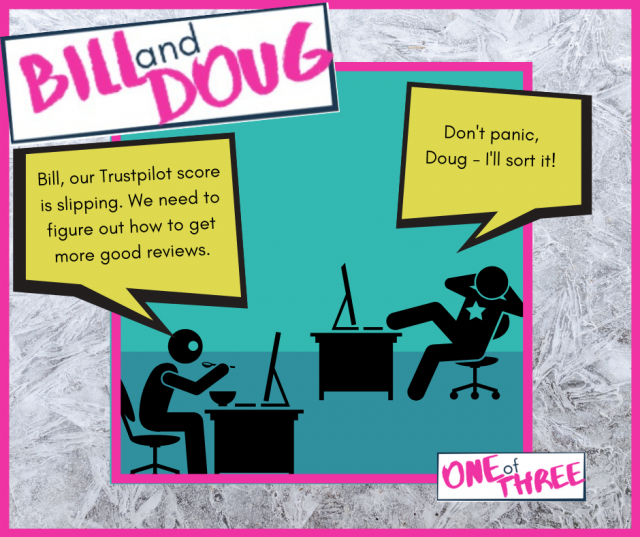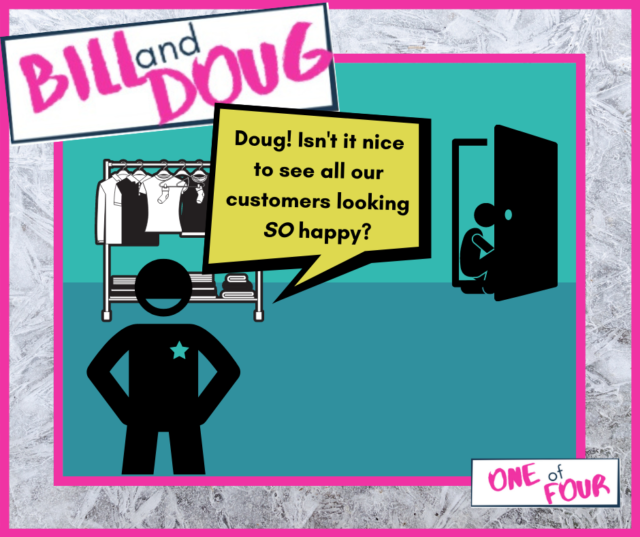May 21, 2025
Reputation CX Interview with Chris Lee, Managing Director, Howards Motor Group

As part of Reputation’s recent Transform 25 event, select partners were on hand at the London gathering to talk about the changing customer landscape and how platforms like Reputation can improve business outcomes.
CXM had the pleasure of talking to Chris Lee, Managing Director of Howards Motor Group. to discuss how customer experience has become central to their strategy, even more so than sales
Howards Motor Group, a family-run business with over 50 years of heritage and 24 locations across the South West, has consistently placed customer satisfaction at the heart of its operations. That focus has led to national recognition; the group has held the highest Reputation Score of any automotive retailer in the UK for the past two years, topping the AM100 rankings.
With a clear strategy centred around customer-centricity and insight-driven decision-making, Chris explains how Howards uses Reputation not just as a tool, but as a cultural driver.
Why did you start using Reputation and what are the benefits?
We were first introduced to Reputation in 2021 as a way to streamline our review management across the various platforms, into one central application. It also gave us the ability to ensure that our online listing information was accurate and consistent, such as opening hours, contact information and locations.
Since that point the platform has evolved into something much more powerful.
So what are you getting from Reputation now?
Over the course of the last four years it has evolved and today it is much more than just review management. We use the insights from our customers, their specific verbatim feedback and cascade throughout the business to show our teams exactly where we are excelling and where we need to improve.
As a business with over five decades of family values, culture has always been strong, but Reputation has helped us sharpen that focus and align our teams behind a single north star: the customer. The platform has played a big role in helping us maintain industry leading customer sentiment across all 24 of our points of representation.
What is the modern car consumer? Have they changed in the digital age, particularly?
It’s a really interesting question, and for us it was clear that the landscape changed drastically during COVID, where consumers had no choice but to engage digitally. This has stayed in place and now consumers desire an omni-channel approach to purchasing. They are now more informed, more selective and more in control of their journey.
As a business we had to quickly adapt and become more flexible, enabling a strategy that ensured consumers could interact with us in a way they preferred. As part of this we created a new area in our business called Howards at Home, here customers can interact with us from the comfort of their home and have their vehicle delivered to their door, or a combination of at home and in-store; whatever they choose.
The single defining factor about our success in the future is going to be the customer and their desire to do business with us. This meant our strategy of customer centricity and Reputation’s platform for listening to our customers were the perfect partnership.
How did you go about improving your reputation?
We focused heavily on the content of the feedback, not just the star ratings but the actual customer comments. That qualitative insight has been crucial in helping us identify specific pressure points and areas for improvement.
We built internal processes around this feedback loop, turning insights back into coaching and development for our teams. Customer feedback features at the top of the agenda in the weekly meeting with the executive team, creating a culture of ‘customer’ from the top and this is filtered throughout the business. It’s been key to elevating standards group-wide and ensuring we’re all continuously learning from what our customers are telling us.
In terms of data and scores coming from your forecourts, how is that feeding back into the business?
The change to reputation as a core strategy and focus around the customer actually involved a change in roles. Listening to customers we understood that they just wanted someone to provide support when they interacted with us, regardless of whether it was sales or service, in the same way you would experience in retail in other industries.
We introduced a new structure with Customer Relationship Managers who are rewarded based on customer sentiment rather than just sales numbers. The CRM role works across both Sales and Service, ensuring there is no ‘sales customer’ or ‘service customer’, just a customer. The objective is for the CRM to provide the highest levels of customer service, whatever the customer needs, this is working and can be seen in our customer feedback.
The CRM role and the Reputation platform was part of a number of changes that we felt we needed to make to remain fit for purpose and customer centric.
And how do your customers’ feedback, I guess some customers know cars more than others?
We definitely see different levels of detail and knowledge amongst our customers, when it comes to the products and services. The amount of information on the internet through social platforms has meant that much of the research is completed before they come on site. Our structure with the customer-centric CRM role, is supported by specialists for each area of the business whether that be technical or sales product specialists, so we are always prepared to be able to support customers with their queries.
The advantage of reading the reviews from all knowledge levels of customers is that we can continue to train the teams and adapt our processes as the market and customer dictates. Agility is key.
How has data changed the sales process?
The data shows us that customers now arrive having done their research and have decided who they want to do business with. Once here, our role is to support that journey with a tailored approach, creating a bespoke experience just for them.
From the business perspective, our teams now consider themselves as trusted professionals rather than just salespeople. It’s gratifying that their decision-making process brings them to us because of our reputation. Customers read our reviews and the experience others have had and trust that we will deliver.
And the final question, is there one bit of customer feedback that sticks in your head?
It’s hard to choose one, but the ones that resonate most are where customers name individual team members and talk about how they went the extra mile.
Those moments reinforce that we’re doing the right things, that our culture of care and accountability is being felt on the ground. It certainly gives us great satisfaction and lets us know the direction of travel is right.




